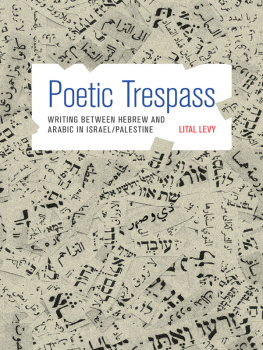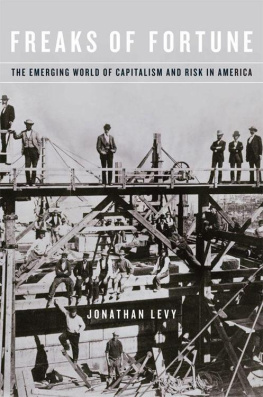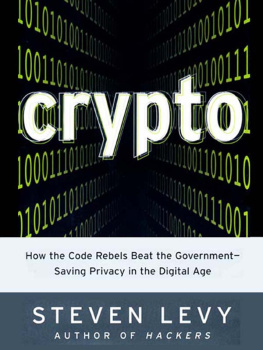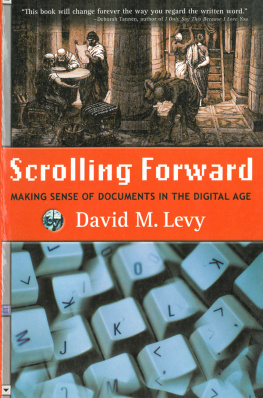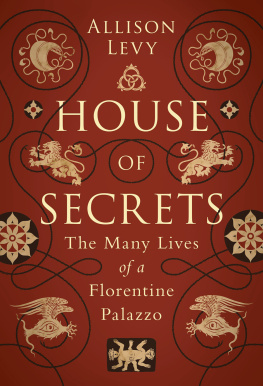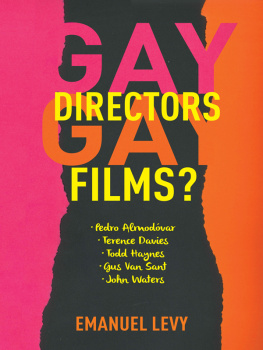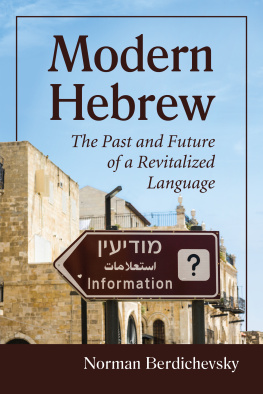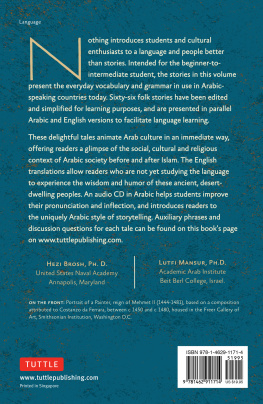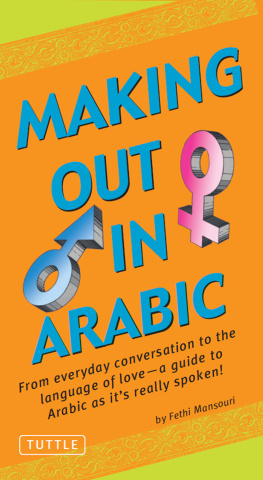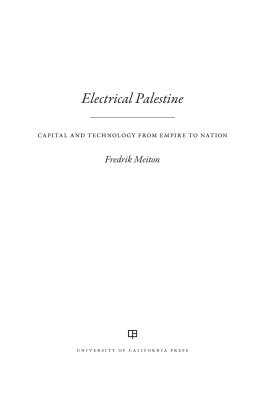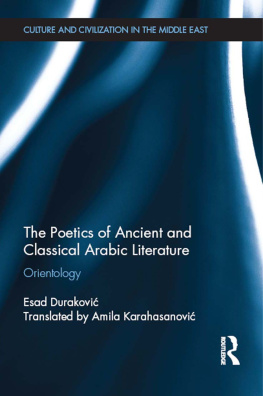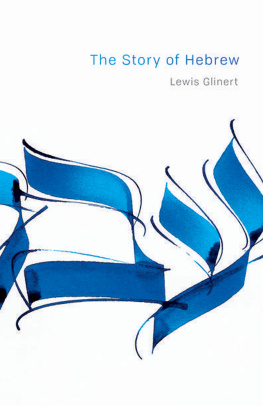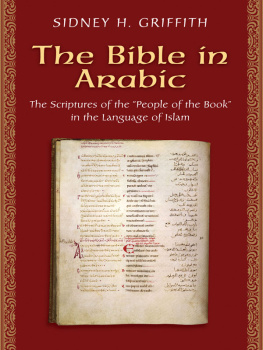
Poetic Trespass
Poetic Trespass
Writing between
HEBREW AND ARABIC
in Israel/Palestine
Lital Lev y
Princeton University Press / Princeton and Oxford
Copyright 2014 by Princeton University Press
Published by Princeton University Press, 41 William Street, Princeton, New Jersey 08540
In the United Kingdom: Princeton University Press, 6 Oxford Street, Woodstock, Oxfordshire OX20 1TW
press.princeton.edu
Jacket art: Hebrew letters are from Seder hagada shel pesa im shar fil-arabi (Passover Haggadah in Judeo-Arabic), Jerusalem: Hostaat Bakal, 1977. Arabic letters are from mile Zola, al-Mal, al-Mal, al-Mal (Arabic translation of LArgent, translated by the Lebanese Jewish journalist Esther Azhari Moyal), Cairo: Matbaat al-Shuri, 1907.
All Rights Reserved
ISBN 978-0-691-16248-5
Library of Congress Control Number: 2014935596
British Library Cataloging-in-Publication Data is available
This book has been composed in Gentium Plus, Berthold Akzidenz Grotesk, and Brioso Pro
Printed on acid-free paper
Printed in the United States of America
10 9 8 7 6 5 4 3 2 1
For Ken and Jonah
Illustrations
Acknowledgments
T his book represents nearly two decades of work on Mizrai and Palestinian literature in Israel. It was researched and written in New York, Jerusalem, Berkeley, Cairo, Tel Aviv, Princeton, Cambridge (MA), and Philadelphia. It began with an independent study of representations of Arabic-Hebrew relations in Israeli fiction, supervised by the late Magda al-Nowaihi (taken from us much too soon), whose example inspired me to become a scholar of literature. The following year, I embarked on a life-changing senior thesis on the poetry of Anton Shammas and Naim Araidi, also under Magdas guidance. That project, the ideational kernel of this book, became my gateway to graduate study in comparative literature. I continued with independent research on Mizrai literature during a year in Jerusalem in 1997 and 1998. My abiding interest in the topic owes much to the passionately committed members of the Tsedek evrati (Social Justice) student organization at the Hebrew University. In spring 1998 we organized a panel on the Mizrai voice in Hebrew literature, with the participation of Amira Hess and Shimon Ballas, which sealed my decision to specialize in Mizrai writing. For their guidance and encouragement that formative year, I thank Nir Eyal, Ahuva Mualem, and Eli Bareket.
At UC Berkeley, I was blessed with an amazing cohort of fellow graduate students as well as excellent mentors. Every page before you bears the imprint of my advisors Robert Alter and Chana Kronfeld, unfailingly wise and generous teachers both. Their scholarship offered models of rigorous reading and elegant writing, and their graduate seminars were the grounds on which I developed much of the material for this book. Sections of were written from 1998 to 2004 for seminars with Chana Kronfeld, Robert Alter, and Ammiel Alcalay at Berkeley, and with Abbas al-Tonsi at the Center for Arabic Study Abroad in Cairo.
My befuddlement in the face of Columbias interlibrary loan system had felicitous consequences, as it prompted me to contact Anton Shammas at Michigan in 1995 and ask him for a copy of his Arabic poetry collection. He became an informal mentor during my transition from undergraduate to graduate studies and, for nearly two decades now, has been a reliable and generous source of knowledge (not to mention a meticulous archivist), repeatedly saving the day. Early on in my graduate studies, Sasson Somekh took me under his wing, and he has followed my progress ever since. His inexhaustible knowledge and his support in matters large and small have made an immeasurable difference throughout this journey. Over the years, Michael Cooperson patiently assisted me with many and sundry matters related to Arabic language and literature, especially questions of translation. Almog Behar, a rare soul whose erudition is matched by his kindness, has been invariably collaborative rather than competitive in sharing his scholarship since we met.
In addition, this book could never have been written without my mentors, colleagues, and students, who shared sources, material, and expertise, acting as sounding boards for ideas, commenting on drafts of chapters, and proofing transliterations from the Hebrew and Arabic. For their invaluable help, I thank Shamma Boyarin, Kfir Cohen, Karen Grumberg, Liora Halperin, Kawthar Jaber, Yael Lehrer, Margaret Litvin, Chana Morgenstern, Michal Raizen, Tova Rosen, Lena Salaymeh, Raymond Scheindlin, Shaul Setter, Vered Shemtov, Deborah Starr, Sheera Talpaz, Riki Traum, Hamutal Tsamir, Dana Sajdi, Azzan Yadin, Yael Zerubavel, the numerous friends and colleagues who patiently answered question after question posted in cyberspace, and the two anonymous reviewers for Princeton University Press. I am also indebted to the audience members who provided feedback at annual meetings of the Middle East Studies Association, the Association for Jewish Studies, the American Comparative Literature Association, and the National Association for Professors of Hebrew, as well as at symposia or talks from 2007 to 2010 at UC Berkeley, Princeton, WIKO (Berlin), Harvard, Rutgers, NYU, Stanford, and UT Austin. Finally, I thank my wonderful colleagues at Princeton, especially Daniel Heller-Roazen, Eileen Reeves, Leonard Barkan, and Sandra Bermann, for their interest in the project and their support during my first years of teaching; and my editors Alison MacKeen, Anne Savarese, and Jenny Wolkowicki at Princeton University Press for seeing it through to its completion. The manuscript was developed during my final year at the Harvard Society of Fellows and completed thanks to the Robert Remsen Laidlaw 04 University Preceptorship in the Humanities at Princeton.
Earlier versions of material from Self and the City: Literary Representations of Jewish Baghdad, Prooftexts 26.12 (2006): 163211 (reprinted by permission of Indiana University Press); and Self-Portraits of the Other: Toward a Palestinian Poetics of Hebrew Verse, in Transforming Loss into Beauty: Essays in Honor of Magda al-Nowaihi, edited by Marle Hammond and Dana Sajdi (Cairo: American University in Cairo Press, 2008), 343402 (reprinted by permission of the American University in Cairo Press). I thank all the publishers for permission to reprint.
How does one thank those for whom the seemingly unending process that culminates in a book has so many personal implications? My parents Joseph and Susan and my sister Roneet have patiently withstood my peripatetic life and long absences. I only wish I could be in two places at once so as to spend more time with them. In Philadelphia, weve been blessed with amazing friends who share in the mad adventure of dual-career parenting; this book would never have been completed without them. Whenever possible, Ken Reisman cooked dinner, reminded me to go to bed, pushed me to sharpen my arguments, and indulged my requests for the philosopher-scientists take on excerpts of opaque literary criticism. To Jonah, qurrat ayni wa-muna qalbi, this is that book everyone kept telling you Ema had to write when you wanted to know why you couldnt play at home all day. Hopefully by the time you can read these words, youll think it was a fairly reasonable trade-off, even if Ema really should have been helping you build those train tracks instead.
Note on Transliteration and Translation
T his book addresses specialists, generalists, and comparatists, with or without any background in Hebrew or Arabic. Furthermore, as it happens, the book discusses two closely related languages with entirely unrelated transliteration systems. As such, I approach transliteration not as an exact science, but as a balancing act between scholarly accountability and overall readability. As a baseline, I follow the recommendations of the
Next page
